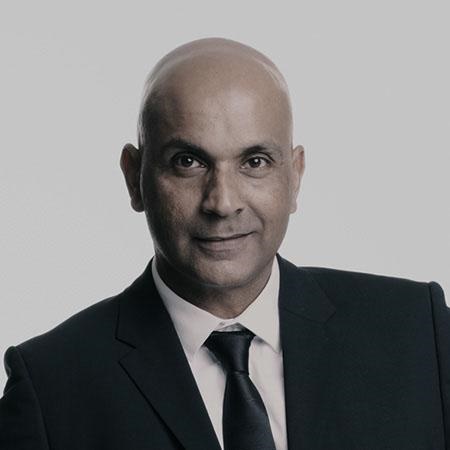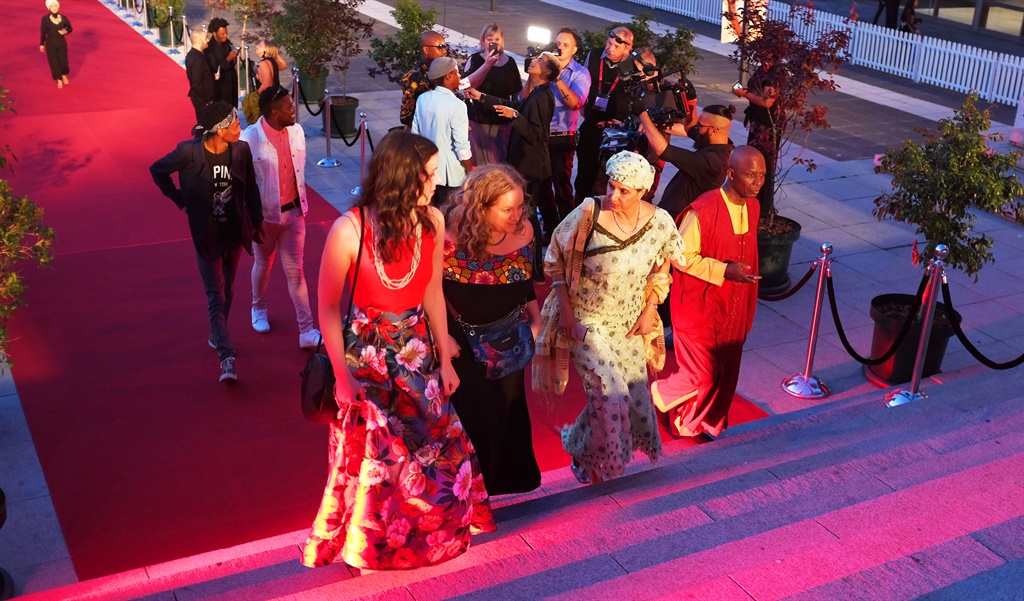
Cape Town’s premier film event owes the industry millions and this week threatened creditors talking to City Press with legal action.
An invitation sent out this week saw many in Cape Town’s film industry rallying together to speak out against the Mother City’s premier film event, the Cape Town International Film Market and Festival, which they say has exploited them.
The invitation was to a three-day women in film business networking event organised by the festival in conjunction with the City of Cape Town and it announced that, on Thursday, there would be the “launch of the Cape Town International Film Market and Festival 2019 with hosting guest of honour executive mayor Dan Plato”.
In the end, the mayor didn’t pitch, but it’s unclear if that’s because of an outraged letter sent to him from two senior former staffers of the festival.
This week, numerous service providers and workers told City Press the festival should not be allowed to go ahead this year until they have been paid for last year’s event.
The festival’s payment schedules seen by City Press put the debt at more than R3.5 million.
Speaking to about 20 sources, we were able to independently confirm that at least R3 million is owed. Some sources – like a leading travel agent owed almost R450 000 – didn’t want to use their names as they hoped they would still be paid.
The festival’s marketing boss and one of the directors of the company that owns it, Jehad Kasu, denied the allegations, saying: “We owe some service providers money for 2018. It is inaccurate that it exceeds, or is close to, R3.5 million.”
The other owners are executive chairperson Rafiq Samsodien, Nazeera Hartley Roach and Leon van der Merwe.
City Press also saw numerous notifications to creditors thanking them for their patience while the festival makes a plan to pay them.
But in the course of our investigation, we found that the festival has been running up serious debt since its inception in 2017, another claim Kasu denied.
Industry insiders say they are trading recklessly and must not be allowed to continue.
The City of Cape Town confirmed that it contributed R1 million of public money to last year’s festival. Numerous other state arts bodies also contributed in various ways to the event, which sees itself as “Cannes in South Africa”.
The letter to the mayor was written by Nikki Froneman, who was the project manager of last year’s festival, and Elias Ribeiro, its market director.
They expressed support for the event, but not its directors, who they believe went into last year’s event knowing full well that they did not have sufficient funds.
Kasu denied this: “We are observing standard processes and procedures with respect to funding that we applied for in 2017, and was due to be disbursed in 2018, to cover the 2018 festival expenses. Due to a backlog in this process, that was only communicated to us shortly before the 2018 event. We are in the position we find ourselves currently.”
Insiders who worked on the festival doubt that there was any further funding confirmed.
Between them, Froneman and Ribeiro are still owed close to R400 000 in consulting fees after months of tireless work on the festival, joining a small army of workers who suffered the same fate.
They include many film students who told City Press how they had to get their own food and transport to work at the festival with a basic wage (R120 per eight-hour shift) – and who didn’t see a cent.
“Basically, we paid to work for them for free,” said a student from a film school in False Bay.
Muendo Muindi, the student who ran the volunteer programme, said almost none of the students had been paid, and many lived in poverty and desperately needed the money. It is believed they are owed about R50 000.
“They keep shifting the blame and are playing a cat-and-mouse game with creditors,” Muindi said. “For most of us, we wanted exposure to our industry. It was our first job in the industry and we were exploited.”
Four top film makers who funded their own flights to Cape Town said they had not been reimbursed.
Sean Drummond, Faye Kabali Kagwa and Sarah Summers are the film workers who won a R30 000 prize for audience engagement strategies at the festival. They confirmed they were still owed their prize money.
The film buff who wrote the festival programme, Sarah Dawson, confirmed she had not been paid for her work, as did the festival’s graphic designer Mary Everard. Sources said that the festival was unlawfully using Everard’s branding to launch this year’s event, as the intellectual property resides with her until she is paid for her work.
Kasu said the payment process “is moving forward”.
“We remain committed to settling all creditors as we run the festival on sound values and ethics,” he said.
On the issue of Everard’s design work, which was featured in the invitations sent out this week, he said: “We are currently taking advice on this matter.”
City Press spoke to transport and technical service providers, who all confirmed they were out of pocket after not being paid.
One five-star hotel told us it had instituted legal action against the festival and eventually settled for less than what it was owed. Many others told of the hardships they suffered after not being paid, including how their families had been affected.
Speaking from the UK, tour operator and event organiser Joe Hannan told City Press about a protracted legal battle with the festival that left him broke and depressed for the first time in his life, unable to even buy his children Christmas presents in 2017. He said he had to retrench four staff members as a result of the money owed to him by the festival organisers.
He worked on the 2017 festival and, eventually, his lawyer advised him to take the festival to the high court to have it provisionally liquidated.
Hannan said: “It has taken me since October 2017 to receive a settlement that prevented their full liquidation on June 11. It was a long, frustrating and expensive process.”
Hannan said he was approached by Samsodien and his business partners just five weeks before the inaugural festival.
“I was not aware that they had neither budget nor a plan in place. But they advised me that sponsorship was forthcoming and any costs I incurred would be refunded as soon as possible.”
So Hannan used his own money to pay deposits for service, as well as for flights and hotels, as suppliers were threatening to withdraw.
He said that, in the beginning, the festival “did in fact start to refund my company, so I had no reason to doubt the legitimacy of their verbal agreement with me”. He put up R1.7 million of his own company’s money.
“By December 2017, I had not received the balance of R410 000, despite me pleading for the money that I needed to run my business.”
In the end, his legal bills amounted to a further R250 000. Eventually, he settled for R350 000 from the festival as it had become clear he was not going to be able to “squeeze water from a stone”. He withdrew his liquidation application.
Kasu in part blames Hannan’s legal action for today’s nonpayments. “As a result of the order brought against us by him, we were unable to transact.”
Sources told City Press how the following year, the festival tried to discredit Hannan, accusing him of misconduct. When asked about this, Hannan was furious that his reputation was being damaged after he had bent over backwards to help the event.
When asked to respond, Kasu said: “The matter has since been discharged and I wish not to discuss it.”
He was, however, clear that this year’s festival would go ahead: “We announced the dates of the festival, and one of our venues is booked and located within the Waterfront.”
However the V&A Waterfront, which hosted the event last year, denied that it had confirmed the festival.
City of Cape Town spokesperson Luthando Tyhalibongo said: “This is an unfortunate situation and the city hopes that the parties involved are able to reach an amicable agreement.
“Funding has been identified for the 2019 event. However, the organisation has been made aware that it will have to comply with all the relevant regulatory requirements if the city is to support the event.”
This week, three sources said they had been threatened with defamation lawsuits if they spoke to City Press.
Kasu denied anyone had been bullied, saying that nondisclosure agreements had been signed and the festival wished to prevent internal documents from being leaked.
Industry insiders this week said they were tired of excuses and that the organisers of the event cared more about the red carpet than about the industry. Kasu vehemently denied this.
The film industry in South Africa is a tight and competitive one. Each province is trying its best to draw the most commercial, TV Series and feature film shoots - benefiting immensely from the economic trickle down effect that positively impacts sectors such as post production services, hospitality, food and beverage, transport, tourism and a myriad of other peripheral sectors – the industry’s economic impact is valued at around R12bn in total operations according to the NFVF’s 2017 film industry impact study.
This brings me to the recent article published by City Press’ Charl Blignaut, in which he scribes a rather frightening image of the Cape Town International Film Market & Festival, and of its Directors.
He sent us a long list of questions that he gave us less than 48hrs to respond to. While in the same email he admittedly says he spent "some time now” speaking to numerous sources about their accounts of the matter.
Nikki Froneman, who was an independent consultant to a company contracted to the festival in 2018, ended her duties after the festival in October 2018 and the payment schedules she provided Charl with has since been updated.
In addition to payment schedules, Nikki also disseminated confidential company documents in breach of an NDA. These documents include the Festival’s business plan and revenue projections – one would need to question why she did this since it has nothing to do with the matter discussed in the article, and none of it is mentioned in Charl’s article.
The article continues to boldly state that the festival has been “running up serious debt since its inception in 2017”, which is a complete fabrication. Records prove that all service providers used in 2017 were paid in full - save for one Joe Hannan from Shape of Africa whose final invoice we contested. This breakdown eventually gave rise to the litigation Charl speaks of. One has to question again why Charl would make this false statement. What impression is he trying to create?
It is also worth noting that the Directors have not drawn a cent of income from the festival since its inception in 2017.
There is also broad speculation that the festival is mostly funded with public funds - a sorely misguided assumption. Every one in the film industry knows exactly how hard it is to garner financial support for a film festival in South Africa. We have however been successful in developing an approach to our festival that some State organs find beneficial in as far as it compliments their strategic goals.
The little bit of public funds received is subject to being spent according to strict SLA’s and in line with the Public Finance Management Act. A mandatory post event report is presented to the funders to ensure transparency and that the funds was spent in accordance with said SLA.
If the Festival or its Directors deviated from this, they would be held accountable to repay all the money back and also not receive funding in the future. From the City’s own statement included in the article, they allocated funding to the festival for 2019, for a third consecutive year – So I guess the Directors are managing public funds well then.
The 2018 deficit that arose and is the leading cause of some unpaid service providers came when, as the City Press article stated, a large tranche of funding was delayed in an unforeseen administrative backlog. Some may doubt this, but ask the owners of the Encounters Film Festival just how unexpectedly these things can happen. Because in 2018, Encounters had funding by the NFVF pulled from them at the 11th hour – sending shockwaves through the industry and calls on the industry to assist with the shortfall. But instead of the CTIFMF calling on the public to chip in when hit with its delay, Rafiq carried the burden by bonding his family home to pay as many service providers as possible – how many other festival owners will do that?
Rafiq and the rest of the directors, who are passionate about developing youth in the industry, felt especially remorseful about the small percentage of student volunteers that was not yet paid. Rafiq then took it upon himself to get some of those youth employed on commercials that he was working on after the festival, as means for them to earn an income and also gain invaluable experience on international TVC’s. Muendo, a disgruntled youth quoted in Charl’s article is one of the beneficiaries of this act of goodwill. I too just a few weeks ago passed on some work to Muendo as a continued gesture of goodwill. More than the opportunity for him to earn an income from it, the platform on which his work is intended to be presented will certainly benefit the development of his career. Again, information conveniently not included in Charl’s narrative.
The handful of people that Charl actually names in his article have seemingly formed a cabal to discredit the Directors of the festival, and not the festival itself - as stated by Charl. You will understand why this is important later on in this piece.
Charl was provided with written letters from creditors who shared the professional, transparent and honest manner in which the festival has been communicating with them about their outstanding accounts - Even the travel agency he references does not want to be named because they believe they will be settled soon.
We have come to learn that Charl was very selective with the information used that he received from some of the people he contacted, or that contacted him. The owner of the transport company he speaks about in his article sent him a letter in which he confirms a debt owing to him, but also states "I have made contact with Rafiek over the last eight months and he has always taken my calls and explained the situation. He has not avoided me in anyway and always responded to my emails.” Charl suspiciously omits this from his article.
Jenny Brown, who has worked on the festival since 2017 wrote to Charl saying "My involvement with CTIFMF was entirely due to the long standing business relationship that I have had with Rafiq Samsodien having worked with him in the Film Industry since the year 2000 doing International Service Work, and although I am owed monies for working for CTIFMF, I completely understand the bigger picture of what Rafiq Samsodien has been setting up for not only the Film Industry but for Economic Development for Cape Town and I trust that this reimbursement for my services rendered will come in due course.” And yes, this too was not mentioned in his article.
Another creditor at Eastern Acoustics, Mr Khan stated in an email to Charl "In the course of getting to know Rafiq and his team, I found them to be honest brokers, transparent and sincere in the manner they conduct themselves and their business. This essentially is what assisted me, and my company, to choose to resolve the potential head-on conflict from a more human-centered perspective.”
We know of several other creditors whom will all present a very similar account of the professional and proactive manner in which the CTIFMF has been managing their internal business affairs.
Charl also states that the V&A denied confirming the event for 2019. This is true, because the venue the festival booked for 2019 is the Nouveau Cinema at the Waterfront. Something the V&A won’t know about because the two entities aren’t related. Had Charl called the cinema, where a film festival takes place, he would have discovered this. A poor attempt at verifying information on his part.
There were also allegations that creditors were bullied and threatened with litigation for speaking to the press. This couldn’t be more false. Here’s a look at how the festival responded to these allegations as extracted from email correspondence with him:
• CHARL: You have sent various ‘without prejudice’ notices threatening legal action against service providers who are talking about money you allegedly owe them. Many perceive this is an intimidatory tactic against people simply telling it as it is. Could you please respond?
• CTIFMF: We have only ever sent two ‘without prejudice’ notices. One on the 18th of June 2019 to Elias Ribero, not for deterring him from speaking to anyone about money owed to him, but in response to threatening voice notes he sent to the CTIFMF Chairman and CEO dated 18 June 2019, in which he threatened to disrupt/halt a Women in Film Business Networking event we did with the CoCT from 19-21 June.
• CTIFMF: The second notice was sent to Nikki Froneman on the 20th of June 2019, also not to deter her from speaking to anyone about money due to her, but from disseminating sensitive and confidential company information that she is prohibited from doing by virtue of an NDA she signed with the company - as any company would t protect sensitive and confidential company data.
And this is how Charl addresses this allegation in his article:
“This week, three sources said they had been threatened with defamation lawsuits if they spoke to City Press. Kasu denied anyone had been bullied, saying that nondisclosure agreements had been signed and the festival wished to prevent internal documents from being leaked.” – Interesting, isn’t it?
When we consider that there’s a handful of individuals who seemingly want to discredit the festival’s Directors, that some of the documents disseminated by Nikki Froneman included amongst others, the festivals business plan and revenue projections that has nothing to do with her grievance; the threat of a hostile festival takeover by a former service provider just a couple of weeks ago, and the mighty keyboard of a journalist who exposed his lack of impartiality - it paints a very different picture altogether, doesn’t it?
From the numerous positive articles written about the CTIFMF since its inception in 2017, the benefit of it for the film and allied industries cannot be disputed. One example of this is that in 2017 the CTIFMF invited Oscar winning Producer of the hit animation franchise, Shrek to the festival. It was Aron's first time to Africa and he was warmly introduced to key animation industry stakeholders in South Africa, of which Trigger Fish is one. Aron and Trigger Fish have since been negotiating a project potentially worth millions of Dollars. A collaboration that may never have happened, or taken much longer to materialize had the festival not brought Aron to Cape Town in 2017.
Apart from an upstanding team as the driving force behind it, this is why the CTIFMF retains the support of key industry stakeholders such as the CoCT. Because if they had any suspicion that the festival is not a sound and suitable industry partner, they would be the first ones to demand accountability.
- Cape Town International Film Market and Festival director Rafiq Samsodien
With regards to recent media coverage about the CTIFMF (23/06/2019) and the response from the CTIFMF (29/06/2019), both published in City Press:
We stand by the information provided to the City Press, and our decision to provide it, in order to substantiate our claims and expose a matter we believe to be in the public interest.
We believe in the integrity of Charl Blignaut and City Press to treat any and all information provided with discretion.
Whilst we could engage on various inaccuracies and deflections in the CTIFMF response, we choose to address the crux of the matter:
Our information is still that 30+ suppliers and 20+ student volunteers are owed a combined total of at least R3 million.
This was confirmed by ourselves directly with suppliers in the week preceding the publication of the original article and then separately by Charl Blignaut of City Press.
We contend that:
- CTIFMF was aware that insufficient funds had been confirmed before the 2018 festival to cover the proposed expenditure
- CTIFMF then failed to take action and adapt the budget of the 2018 festival to the confirmed funds available
- CTIFMF received strong advice to postpone or cancel the 2018 festival, but insisted on going ahead and made repeated verbal assurances that additional funds had been/were in the process of being secured
The CTIFMF response states that it is a “misguided assumption” that public funds are the main source of income but also claims that the delay in payment is due to a “backlog…that was communicated to [CTIFMF] shortly before the 2018 event” of “funding that we applied for in 2017, and was due to be disbursed in 2018”.
We therefore ask the CTIFMF:
- To provide proof of the source of the funding
- To provide proof of the communication that advised of the backlog
- To provide proof that the funding is approved, the amount thereof, and by when it is expected
- To provide a comprehensive payment schedule for the outstanding creditors
We would welcome this information and an ensuing resolution to this matter.
We clarify that:
- We make no allegations that any money received was misused by the directors of CTIFMF (Pty) Ltd for any improper expenses and acknowledge they are also owed salary payments.
- We make no allegation that CTIFMF (Pty) Ltd has not communicated with suppliers, the original article in City Press refers to “numerous notifications to creditors thanking them for their patience while the festival makes a plan to pay them.”
We sincerely hope that the festival itself can be rescued since it could be a key annual event, and indeed the 2018 version was praised by local and international filmmakers and industry professionals for the quality of the film and industry program. However, all this was achieved at the cost of service providers and individuals not being paid.
The festival needs the full support and endorsement of the City of Cape Town and other strategic partners, and to be run by a qualified and respected team, that can truly use it to leverage Cape Town's reputation as an international film destination and contribute to building the local industry and much needed valuable film-related economy.
Encounters did indeed experience a funding crisis in 2018 due to a funding shortfall.
The Festival management respondent by approaching key funders, and executed a public awareness and crowdfunding campaign which successed in raising the funding shortfall within two weeks.
The Festival, through the support of funders, has recently completed a successful festival. Encounters is an NGO and is governed by a board of directors and does not have owners.
For 21 years Encounters has achieved its goals according to strict budgets and does not have any debt.




 Publications
Publications
 Partners
Partners











